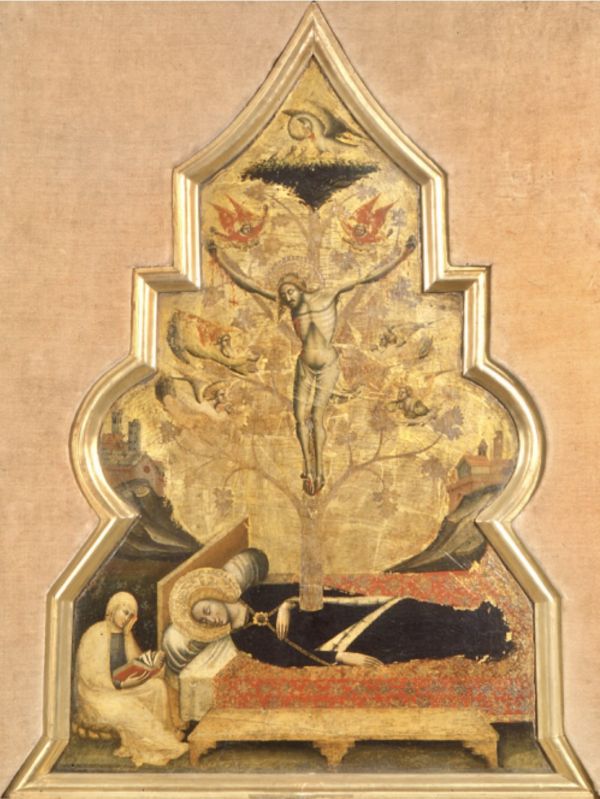«If you do not see signs and wonders, you do not believe»
(Jn 4:43-54)
Jesus takes the rhythm of the catechumen's interior journey (v.47) to introduce us in his Vision, which regenerates our flesh and puts us back to the Exodus (v.50) unleashesing a whole dynamism around (v.51).
On the Way, every creature is returned to itself and to the radical goodness of the original project - rediscovered first inside, then outside of itself.
Having Faith is leaving, and letting oneself be traumatized. «In fact, Jesus had testified that a prophet in his own country has no honor» (v.44).
After showing in the episode of the Samaritan woman (vv.1-42) the meaning of Christ as a new Temple for both Jews and "heretics", Jn illustrates its sense for the pagans.
As if the dimension of Resurrection [«after the two days»: v.43] moved the House of God to the whole world.
The fundamentalists of Judaism were forbidden to go through Samaria and stay with the Samaritans (cf. Jn 4:9) considered mestizos [theologically polygamous: Jn 4:17-18].
Jesus isn’t limited to his own lineage, and not even to his religion.
In Galilee the Lord receives a super-pagan, who begs for help because realizes that the world he comes from is unable to generate life (vv.46-47.49.53).
The banal auspices of cultural baggage block the freedom of thought from what isn’t yet foreseen, setting stereotypes.
The impregnated with idols no longer sees anything; he doesn’t even meet himself and his closests.
And experiences no unknown forces. At best, he believes in the pagan protector god, who works miracles according lottery.
Whoever adjusts himself with the naked eye... supposes to see the Lord who heals through extraordinary gestures [v. 48: «if you do not see signs and wonders, do not believe»].
The life-giving power of the Word escapes him: Logos that touches without being seen but makes Jesus Present in his work and in his incisive, effective entirety.
Christ is interested in making people understand how Faith “flows” in its pure quality: what dynamisms it activates - not the show of the spectacle-religion, all external.
The epidermal expressions close the crowd in intimism, or arouse interest in oddities that shake the senses, triggering a moment of enthusiasm, not the center of each person.
The newness of Christ isn’t transmitted by contact, but by fully welcoming his unexpected Word-event. It’s not subject to a locality principle or other ‘guarantee’.
The outward gaze is convinced by miracles, but doesn’t grasp the profound meaning of the Sign that speaks to us of the Son’s Person - the true ‘spectacle’. All yet to be tested.
The curious are waiting to see and notice. Thus they die of relative hopes, without ‘root’ in themselves.
Only in Faith does one discover what’s not yet seen with the naked eye, nor did we know it existed.
To internalize and live the message:
How does adherence to the Word of Christ help to overcome the banal desire for clamor or escape?
[Monday 4th wk. in Lent, March 31, 2025]












